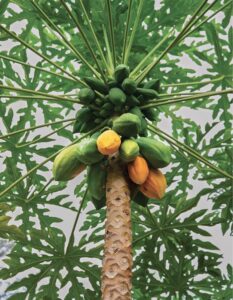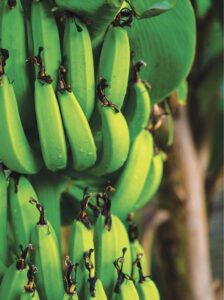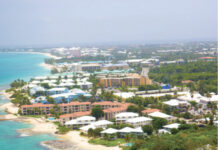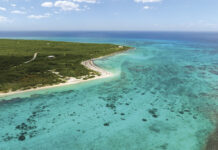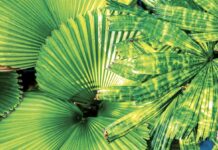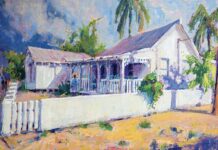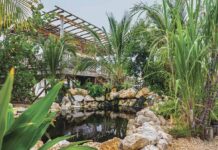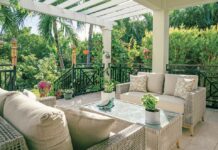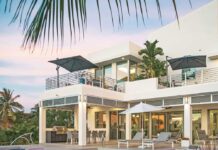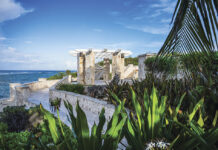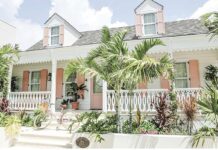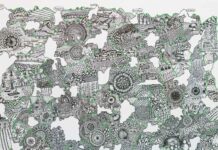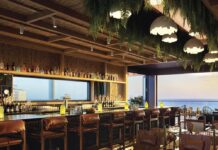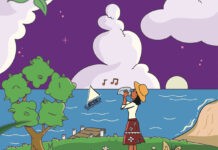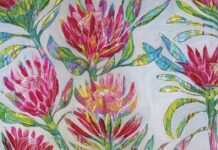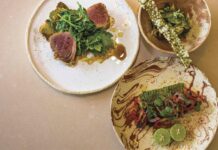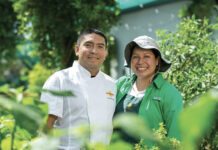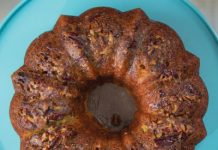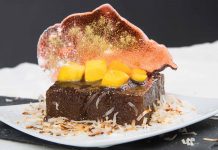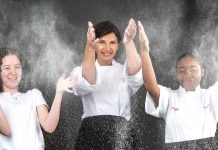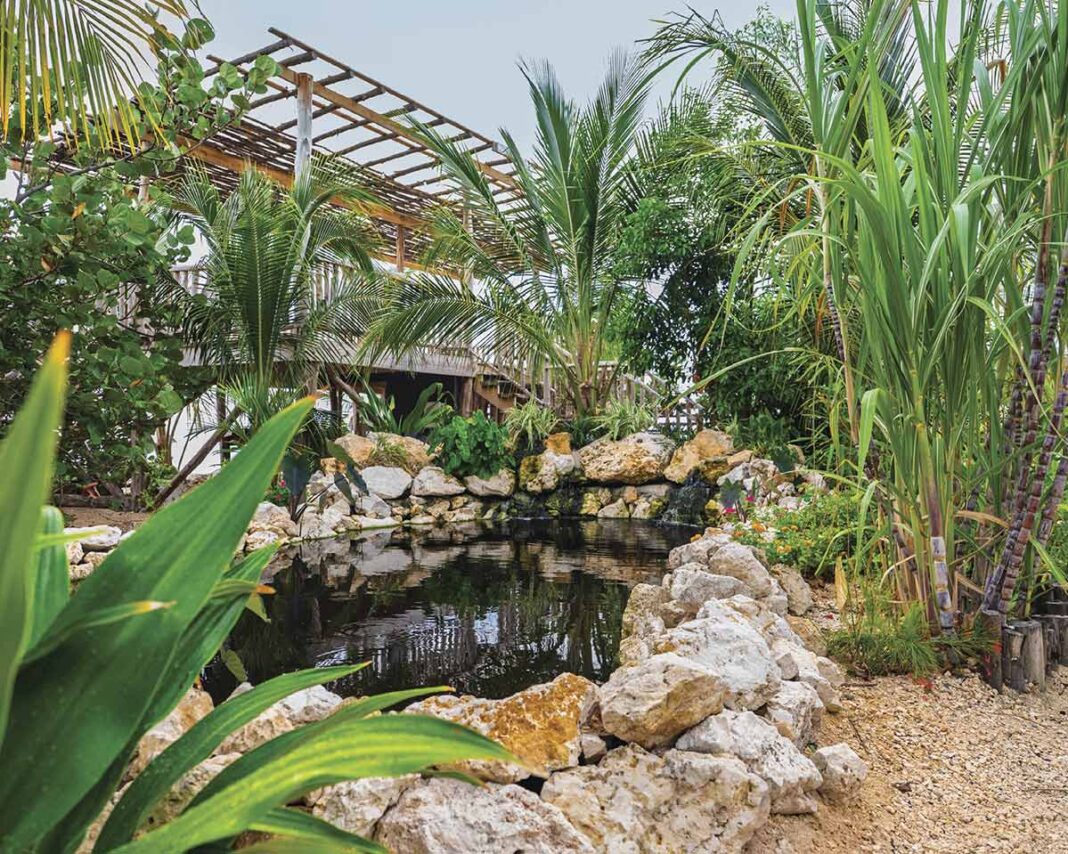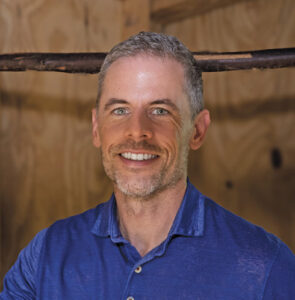
Nestled next to their house in South Sound is a backyard farm created just a couple of years ago by Chris Luijten and his family, who now relish eating what they grow.
Relative newcomers to farming, the Luijtens strongly believe that people’s choices of food not only influence their health, but also the world around them.
“We wanted to make a positive contribution to the environment by growing food that is nutritious, easy to grow and does not require any form of chemical intervention,” says Chris.
“Our diet consists primarily of the produce the farm gives us; it’s a very Caribbean diet. It’s a concept that works well; eat what grows easily in the climate where you are.”
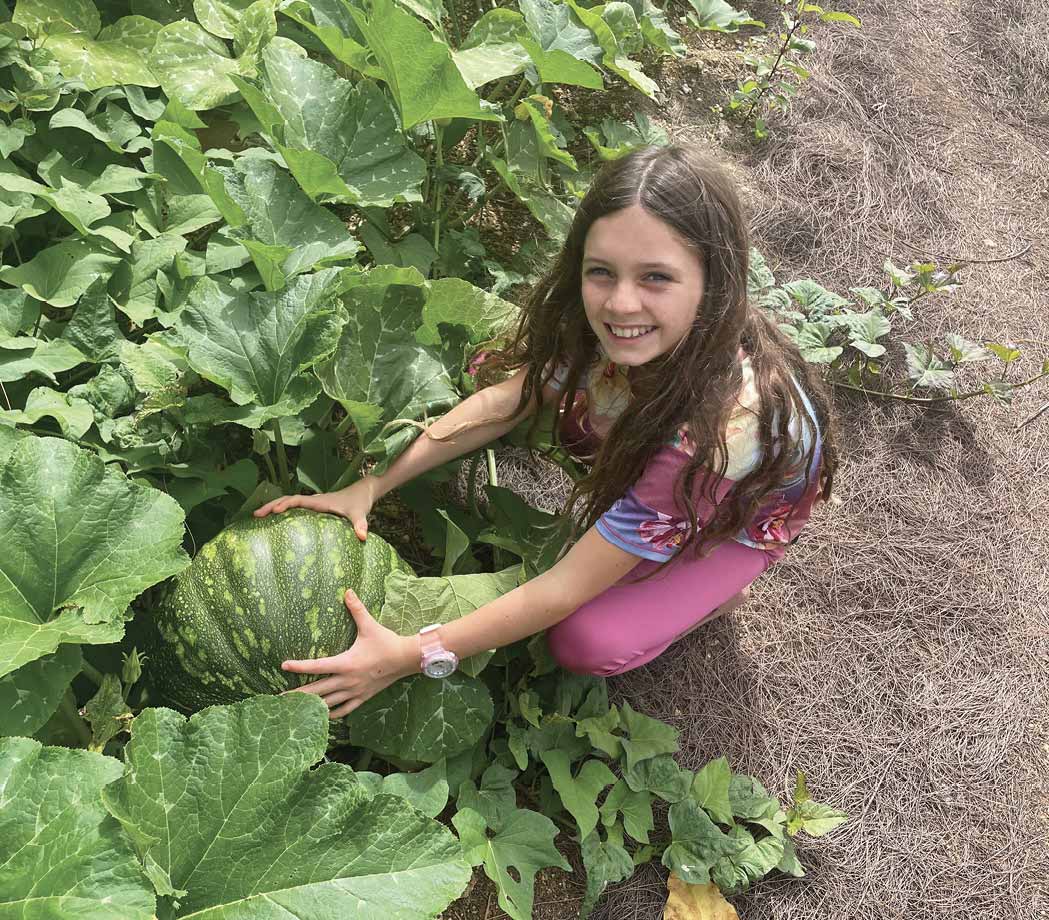
FEEDING THE FAMILY
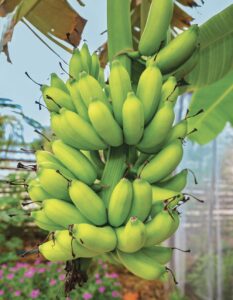
Chris and his wife Karen moved to Grand Cayman from the Dutch Caribbean island of Curaçao in 2013, originally buying the half-acre plot adjacent to their house for reasons of privacy.
Living there with their daughters Phoebe, 11, and Chloe, 8 – along with frequent visits from Chris’s three grown-up sons – they decided to develop the backyard farm to supply food for the family.
And it has proved bountiful, with fruit and vegetables ranging from plantain and bananas to Lima beans, spinach, peppers, pumpkins, papaya and onions, giving a near-constant supply of produce.
As a keen cook, Chris delights in the farm-to-table freshness of their food.
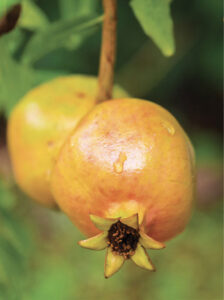
“I cook several times a day for the family, and having the farm has taken my passion for cooking to a new level,” he says. “For any chef, or kitchen enthusiast, being able to grow your own produce provides ultimate control over ingredient quality and it adds depth to the experience as the food now has a ‘story’. It’s also incredibly fun to involve your kids in the experience as well.”
Aside from the crops that are grown on the farm, there is also a ‘bunny mansion’ to house 18 rabbits, a coop of ‘Cayman chickens’, a fish pond, and plans to add pigeons to the property.
“We also want to build a small, black soldier fly larvae-station to turn food waste into high-quality protein that we can then feed to the animals and fish,” says Chris.
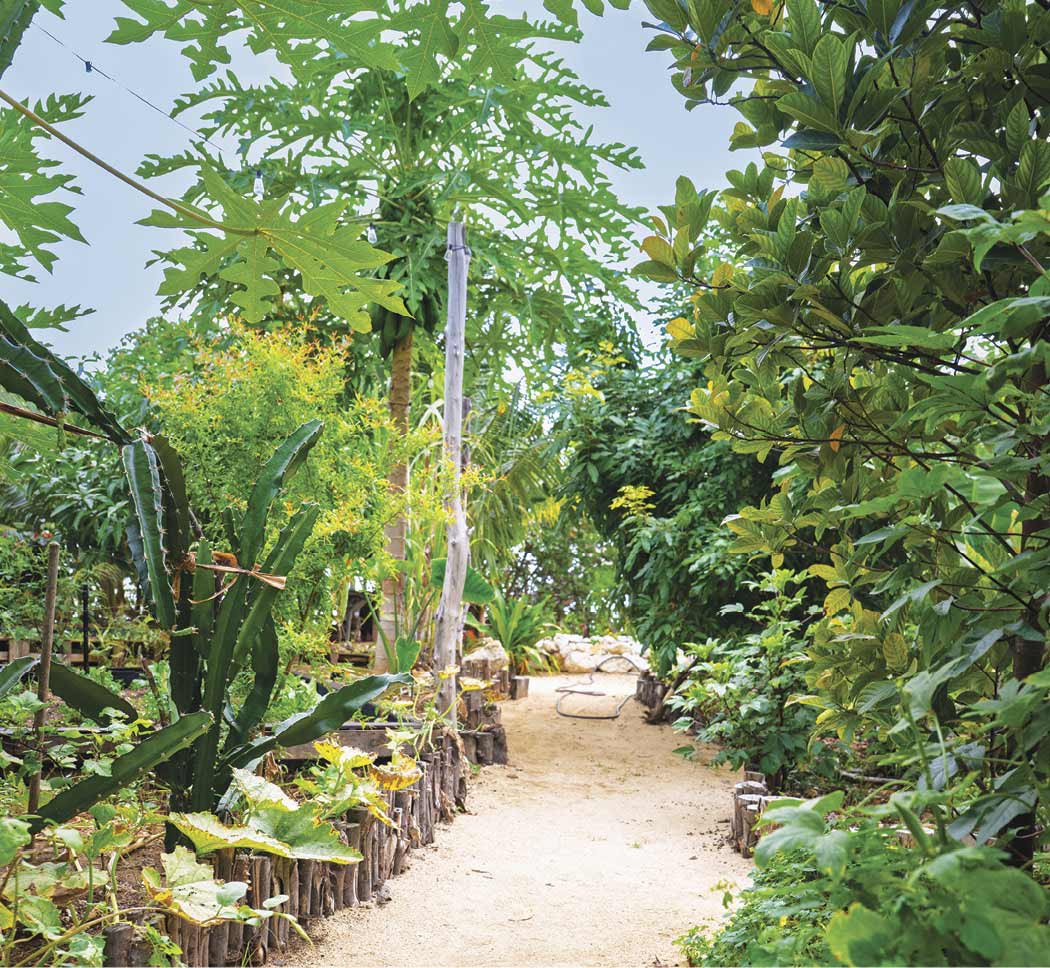
CIRCULAR FARMING
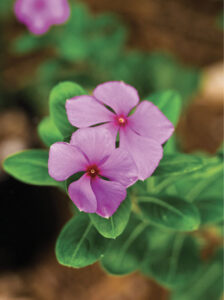
“The farm is actually a food forest in development,” says Chris. This concept mimics the layered, regenerative system of natural forests, with different edible plants at various heights and stages of growth.
He also favours the method of ‘circular farming’.
“In nature, the soil is built from deposits such as leaves, woody debris, dead insects, and manure from various animals,” he explains.
“We leverage various ‘waste streams’, such as horse manure, as well as the droppings from our bunnies, and the sand, and chicken manure, using this to amend the soil. The result is a very healthy soil full of nutrients. Our plantain trees are about double the size of what you normally see on the island.”
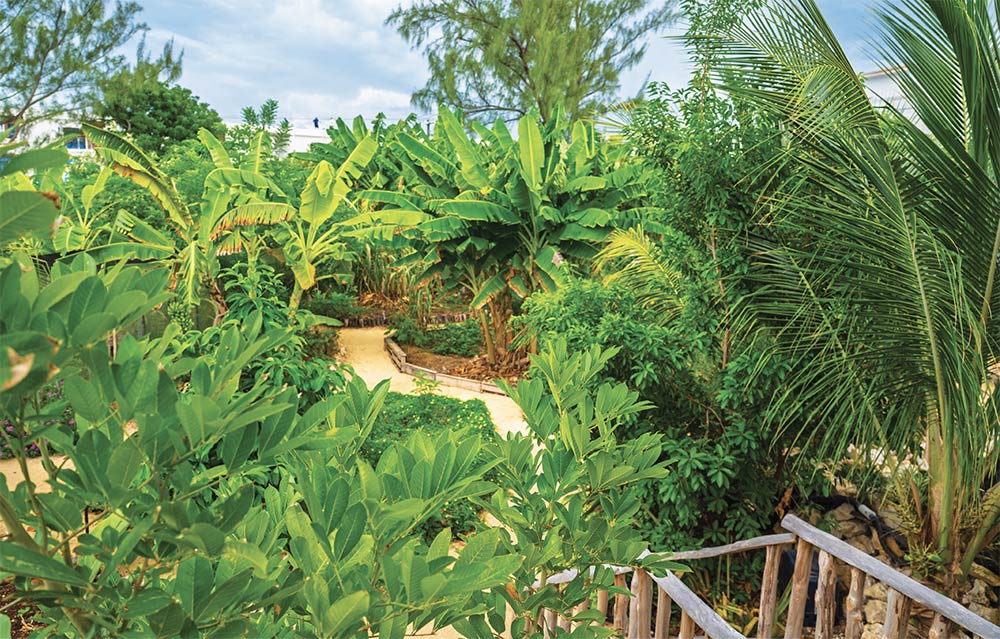
WASTE NOT, WANT NOT
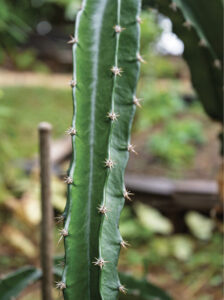
Chris describes the location as a ‘junk-yard farm’, as it incorporates so many recycled materials.
“If you use a little imagination, most things that are considered waste are actually very useful,” he says.
“We have collected wood pallets from the side of the road to make benches, a tree house and raised beds. We have used invasive casuarina trees to make posts and create trellises and arches.”
Even some of the nails and screws have been re-used from the pallets, meaning that nearly everything on the farm is made from secondhand or reclaimed materials.
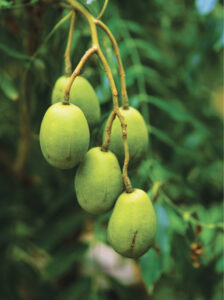
Chris, who is the founder and CEO of several tech businesses specialising in data intelligence and compliance, runs his business from home, allowing him to spend plenty of time on the farm.
He often heads out there early in the mornings, and the whole family enjoys the outdoor farm lifestyle at weekends.
“It’s our favourite spot; we also have an energetic dog (Malinois breed) and he loves to race around the paths to get his energy out,” says Chris.
“The farm is also very cool as we get the ocean breeze, and the trees give a lot of shade. We believe it’s probably the coolest spot on the island.”
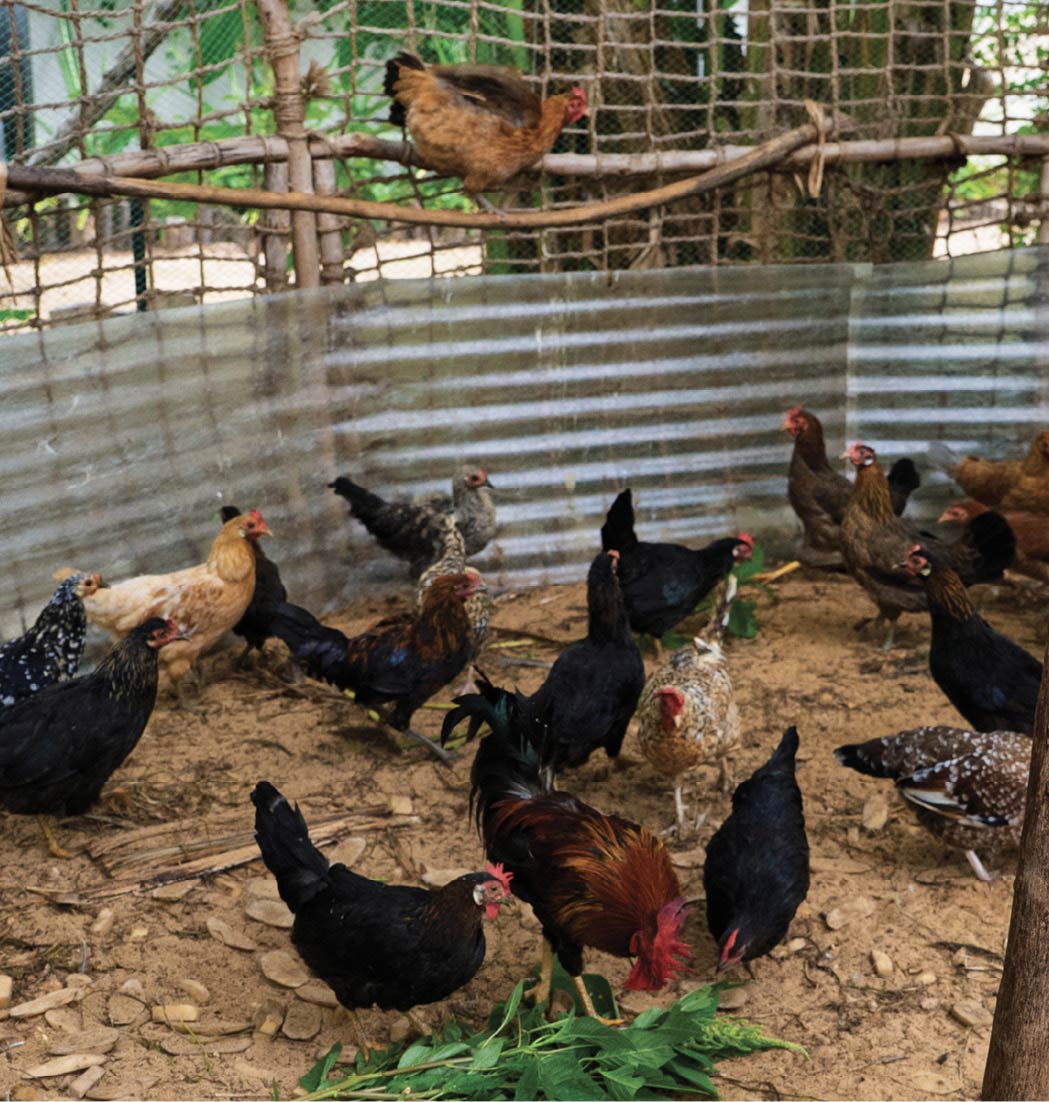
LEARNING TO FARM
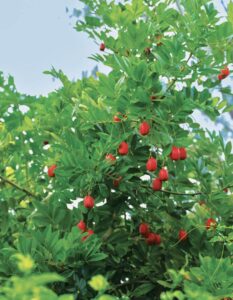
Prior to finding his green fingers in Cayman, Chris’ limited experience of farming was as a teenager working on fruit farms in the Netherlands, which he remembers as boring, hot and paying little money.
“Most farms around the world just grow the same crop for miles: the industrial farming model,” he says.
“I realise now that such farming practices are not sustainable as they deplete the soil, are heavily reliant on pesticides and fertilisers, and produce products that might look and taste good, but do not have the micronutrients of organic produce grown in a natural, rustic environment.”
Chris encourages others to try backyard farming, which was once the custom in Cayman and around the world.
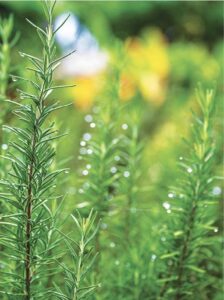
“Start with things that work well in this climate and that are low maintenance,” he suggests. “Things like tomatoes are high maintenance and prone to pests like mealybugs. Most people I speak to said they tried farming, but they have no green thumb and, when I ask them what they did, they always started with the difficult stuff.
“The other thing I would say is avoid pesticides or artificial soils. It gives much more satisfaction and better taste to go the natural way.”
Even small containers on a patio or inside the home or office can be used, he says.
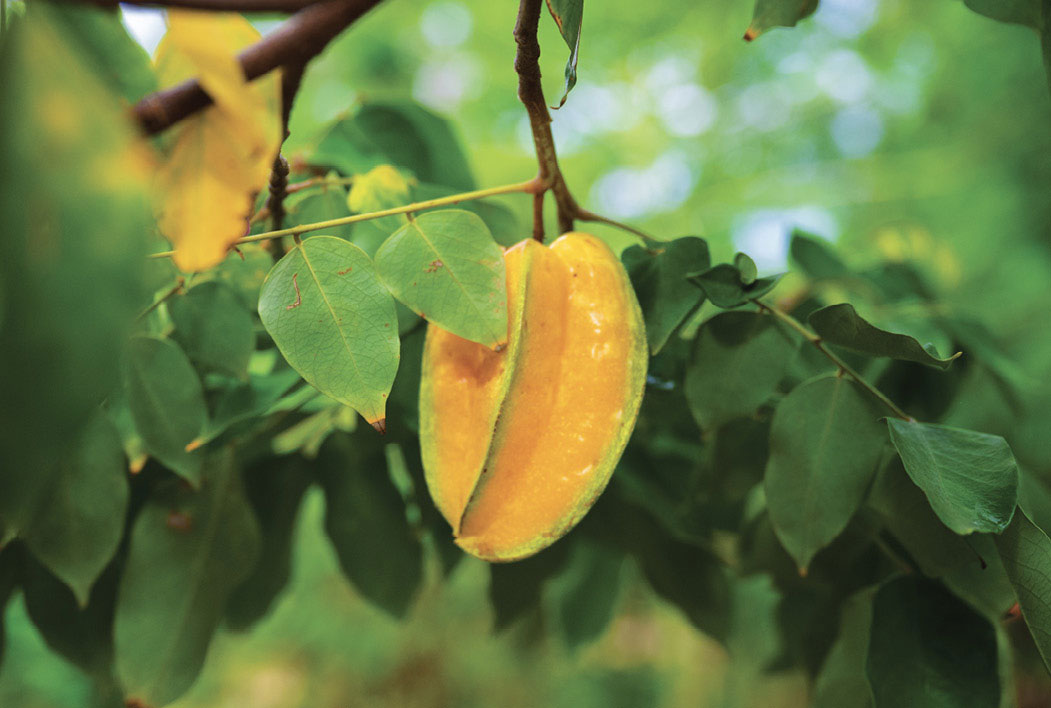
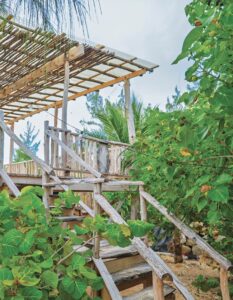
SHARING THE BOUNTY
The family often hosts gatherings on the farm, where guests can not only enjoy being among nature, but taste some of the delicious food grown on the spot.
The Luijtens enjoy sharing the bounty of their farm, continuing a practice that has long been the Cayman Islands custom of giving to others.
“Whenever we get in the car to see friends, or to an appointment, it has become a custom to bring a brown paper bag of produce with us, as we are always giving stuff away,” says Chris.
He also hopes the family’s intention of inspiring others to try backyard farming and reconnect with the natural world will bear fruit.
